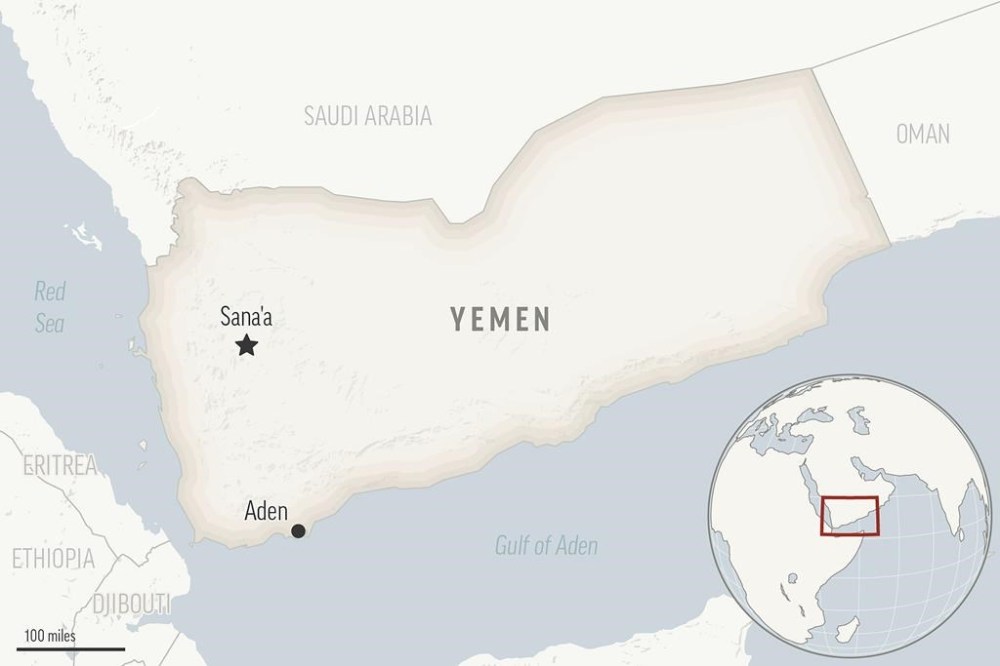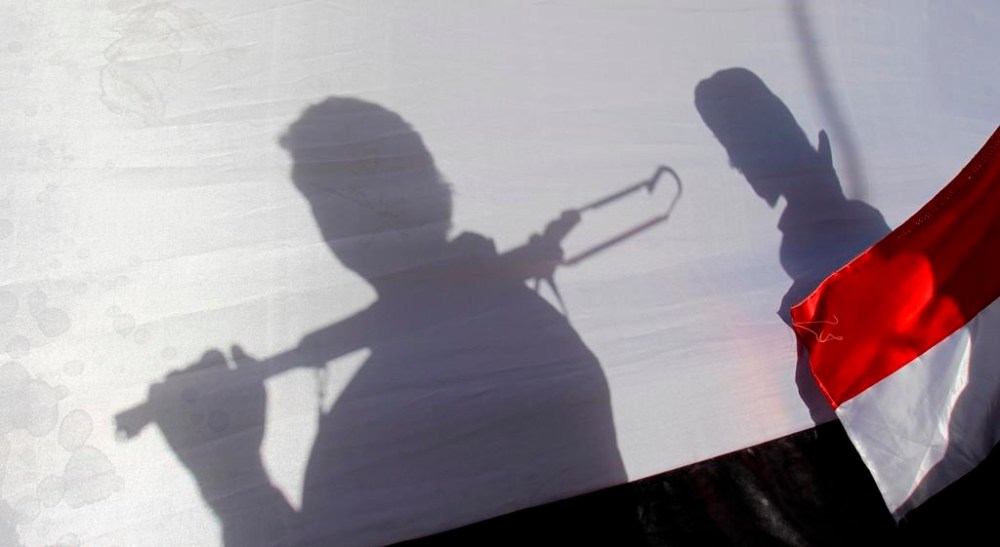Delegation from Yemen’s Houthi rebels flies into Saudi Arabia for peace talks with kingdom
Advertisement
Read this article for free:
or
Already have an account? Log in here »
To continue reading, please subscribe:
Monthly Digital Subscription
$0 for the first 4 weeks*
- Enjoy unlimited reading on winnipegfreepress.com
- Read the E-Edition, our digital replica newspaper
- Access News Break, our award-winning app
- Play interactive puzzles
*No charge for 4 weeks then price increases to the regular rate of $19.95 plus GST every four weeks. Offer available to new and qualified returning subscribers only. Cancel any time.
Monthly Digital Subscription
$4.99/week*
- Enjoy unlimited reading on winnipegfreepress.com
- Read the E-Edition, our digital replica newspaper
- Access News Break, our award-winning app
- Play interactive puzzles
*Billed as $19.95 plus GST every four weeks. Cancel any time.
To continue reading, please subscribe:
Add Free Press access to your Brandon Sun subscription for only an additional
$1 for the first 4 weeks*
*Your next subscription payment will increase by $1.00 and you will be charged $16.99 plus GST for four weeks. After four weeks, your payment will increase to $23.99 plus GST every four weeks.
Read unlimited articles for free today:
or
Already have an account? Log in here »
Hey there, time traveller!
This article was published 14/09/2023 (843 days ago), so information in it may no longer be current.
DUBAI, United Arab Emirates (AP) — A delegation from Yemen’s Houthi rebels has flown into Saudi Arabia for talks with the kingdom on potentially ending the yearslong war tearing at the Arab world’s poorest nation, officials said.
It remains unclear what terms are being discussed between Riyadh and the Iranian-backed Houthis, who have held Yemen’s capital of Sanaa since September 2014. But this first public trip by a senior Houthi delegation comes after regional rivals Saudi Arabia and Iran reached a Chinese-mediated détente earlier this year and as there has been a flurry of diplomatic activity between the different parties in the proxy war.
This latest effort appears to have begun with a visit Monday to Oman by Saudi Crown Prince Mohammed bin Salman, the assertive son of King Salman who launched the kingdom-led war back in March 2015. Oman long has served as an interlocutor between both Iran and the Houthis during the war.

On Thursday, King Salman and Crown Prince Mohammed reportedly received letters from Iran’s hard-line President Ebrahim Raisi, who is a protégé of Supreme Leader Ayatollah Ali Khamenei. The substance of the letters was not publicly acknowledged by either country, but they came as an Omani delegation visited Houthi officials in Sanaa.
Field Marshal Mahdi al-Mashat, the head of the Houthis’ supreme political council, issued a statement via the Houthi-controlled SABA news agency praising the peace efforts.
“Peace was and remains our first choice, which must be worked on by everyone,” al-Mashat said. “In response to the mediation of Oman, the national delegation will go, accompanied by the Omani delegation, to Riyadh to complete consultations with the Saudi side.”
Early Friday, the state-run Saudi Press Agency acknowledged that a Houthi delegation had been invited to the kingdom, without elaborating. The English-language newspaper Arab News, which is owned by a company long tied to the kingdom’s royal family, reported that the 10-member Houthi delegation had flown into Riyadh on Thursday night.
Jake Sullivan, President Joe Biden’s national security adviser, welcomed Saudi Arabia’s hosting of the Houthi delegation and thanked Oman for its role in brokering the talks.
“We call on all parties to this terrible conflict to further solidify and expand on the benefits of the truce that has brought a measure of peace to the Yemeni people, and ultimately bring this war to an end,” Sullivan said in a statement.
Analysts have described the move by Saudi Arabia to welcome the Houthi delegation publicly as a positive step. However, it isn’t yet likely the definitive moment in reaching a peace in Yemen, though it is important, said Farea Al Muslimi, a research fellow at Chatham House.
“This is no doubt a crucial step in further de-escalation in Yemen,” he said. “It can build on a comprehensive U.N.-led ceasefire as well as further measures that will help lessen the suffering of Yemeni people.”
Yemen’s conflict began in 2014 when the Houthis seized Sanaa and much of the country’s north. The internationally recognized government fled to the south and then into exile in Saudi Arabia.

The Houthi takeover prompted a Saudi-led coalition to intervene months later and the conflict turned into a regional proxy war between Saudi Arabia and Iran, with the United States long involved on the periphery, providing intelligence assistance to the kingdom.
However, international criticism over Saudi airstrikes killing civilians saw the U.S. pull back its support. But the U.S. is suspected of still carrying out drone strikes targeting suspected members of Yemen’s local al-Qaida branch.
The war has killed more than 150,000 people, including fighters and civilians, and created one of the world’s worst humanitarian disasters. A cease-fire that expired last October largely has held in the time since, however. Saudi Arabia, its local allies and the Houthis conducted a prisoner exchange in April as part of peace talk efforts.
___
Find more of AP’s Middle East coverage at https://apnews.com/hub/middle-east

